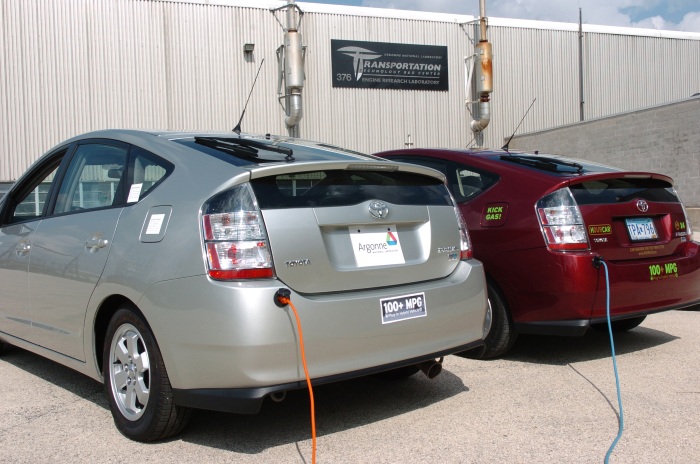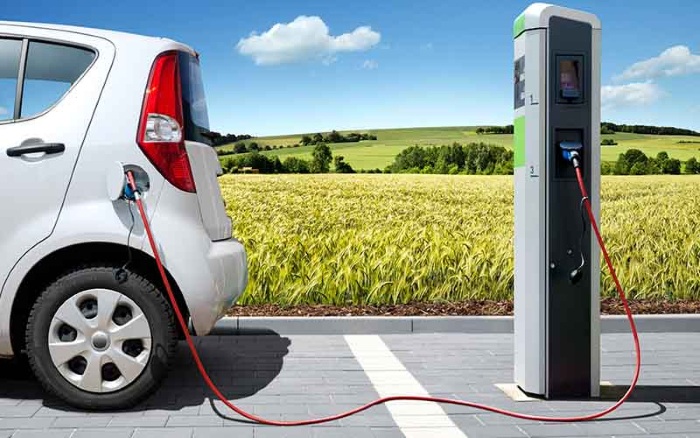A pair of researchers from the Stockholm Environment Institute have found that the prices for battery packs in electric vehicles (EV) have been falling at a faster rate than originally reported.
This suggests the cost for an EV might actually be affordable sooner than previously thought.

Björn Nykvist and Måns Nilsson published the results of their study in Nature Climate Change. In it, they describe their process of gathering information from 80 different sources, whereupon they discovered the average cost estimates for lithium-ion batteries to be $1,000 per kWh back in 2007. Their latest figures show the cost has dropped to $300 per kWh today which, they say, is about the cost of running a gasoline powered vehicle.
Should this trend of an 8% price-fall-rate per year continue over the next decade, the price per kWh could eventually hit $150, which Nykvist and Nilsson say could make these cars cost competitive, and also have a major impact on the climate.

The report also shows battery pack prices below what industry analysts have been predicting, with current prices at levels many “experts” have suggested would not be seen until at least 2020. And with makers like Tesla and Nissan announcing their plans to ramp up production of this technology, it could lead to greater economies of scale, thereby resulting in these prices being reduced at an even faster rate.
Should this all occur, EV makers will have two options: either lower the price of their cars, or add more distance to their vehicles, thereby justifying the higher price of their EV.
In terms of data, Nykdvist and Nilsson used price estimates from a long list of sources to come up with their averages, including statements from EV makers, news reports, and research papers, as well as documents published by governments, universities, and businesses.
Ultimately, the conclusion is that EVs will become cost competitive sooner than many predicted; in all likelihood, in less than a decade’s time.
Interested in learning more about the study? Below is the abstract from the pair’s report, which is followed by a link to the paper in full.
Abstract
To properly evaluate the prospects for commercially competitive battery electric vehicles (BEV) one must have accurate information on current and predicted cost of battery packs. The literature reveals that costs are coming down, but with large uncertainties on past, current and future costs of the dominating Li-ion technology. This paper presents an original systematic review, analysing over 80 different estimates reported 2007–2014 to systematically trace the costs of Li-ion battery packs for BEV manufacturers. We show that industry-wide cost estimates declined by approximately 14% annually between 2007 and 2014, from above US$1,000 per kWh to around US$410 per kWh, and that the cost of battery packs used by market-leading BEV manufacturers are even lower, at US$300 per kWh, and has declined by 8% annually. Learning rate, the cost reduction following a cumulative doubling of production, is found to be between 6 and 9%, in line with earlier studies on vehicle battery technology. We reveal that the costs of Li-ion battery packs continue to decline and that the costs among market leaders are much lower than previously reported. This has significant implications for the assumptions used when modelling future energy and transport systems and permits an optimistic outlook for BEVs contributing to low-carbon transport.
Full study via Nature Climate Change
Advertisement
Learn more about Electronic Products Magazine





